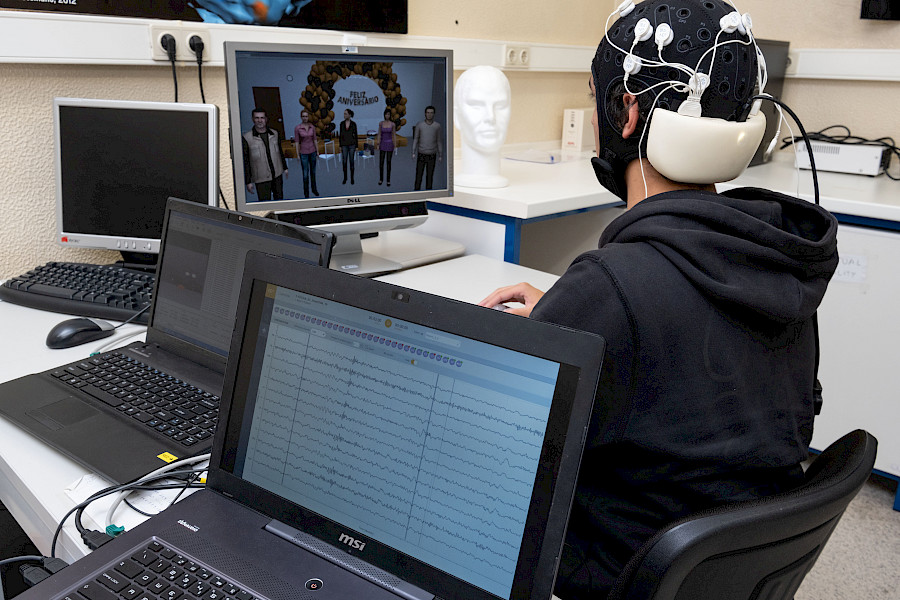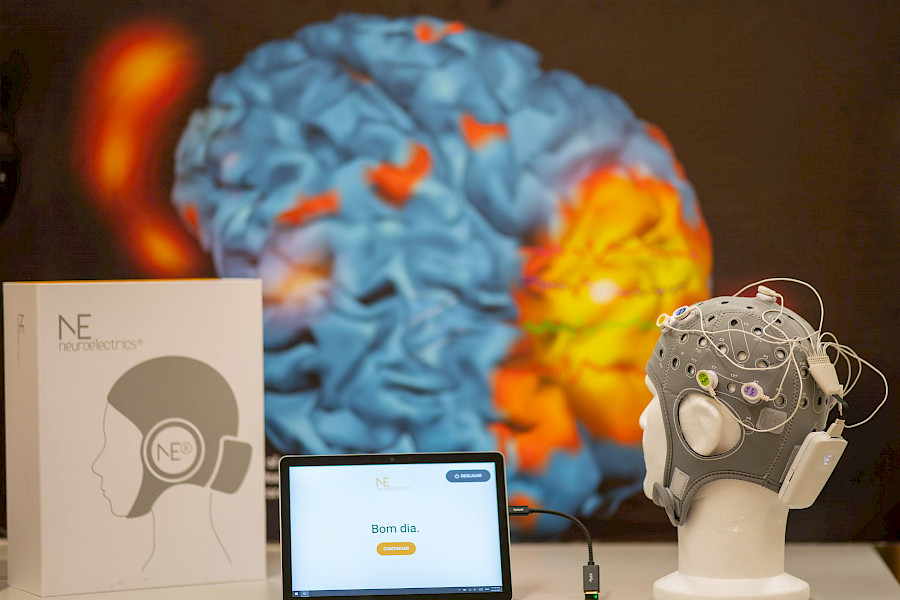University of Coimbra conducts pioneering clinical trial of brain-stimulating medical device for children
The new therapeutic approach was developed as part of the European STIPED project
Translation by Diana Taborda
A multidisciplinary team of scientists from the University of Coimbra (UC) will conduct the first clinical trial in Portugal of an innovative at-home treatment for children and adolescents diagnosed with Attention Deficit Hyperactivity Disorder (ADHD) or Autism Spectrum Disorder (ASD).
This new therapeutic approach was developed as part of the European STIPED project, a scientific collaboration between 10 universities, clinics and companies across Europe, including the UC, and is based on an innovative, effective, safe and user-friendly method of brain stimulation, "using transcranial direct current stimulation (tDCS), a non-invasive technique that delivers low amplitude direct currents to the brain in regions thought to be affected by these disorders," explains Miguel Castelo-Branco, coordinator of the Portuguese team and professor at the Faculty of Medicine of the University of Coimbra (FMUC).
Funded with six million euros from the European Union's Horizon 2020 research and innovation programme, the project has undergone a first phase of clinical and academic research and has recently been approved by regulators in several European countries for at-home medical device testing.
In Portugal, before starting this first trial from home, Miguel Castelo-Branco's team carried out several studies and three clinical trials in the laboratory, at the Institute for Biomedical Imaging and Translational Research (CIBIT/ICNAS), and in a hospital environment, involving around a hundred healthy children and adolescents with ADHD and ASD.
After the conclusion of the first clinical test with the new biomedical device, the UC scientists intend to carry out new trials, and are therefore open to contact from families and potential volunteers. Those interested in participating in the STIPED project may register at the website: https://voluntarios.cibit.uc.pt/stiped/ (in Portuguese).
The STIPED project, which brings together medical doctors, psychologists, mathematicians, engineers and bioethics experts, has as its main objective to find alternatives to replace "traditional therapeutic options, based on medication, which in the case of autism are merely symptomatic and with side effects that are often severe", says Miguel Castelo-Branco.
According to the consortium, "This is a completely new approach to the treatment of chronic neuropsychiatric disorders in paediatrics, based on "personalised treatment, using a biomedical device for at-home treatment (a cap with electrodes) and a telemedicine service that allows remote control of safety, stimulation settings and continuous monitoring of clinical symptoms".
More information about the project is available at: https://www.stiped.eu/


